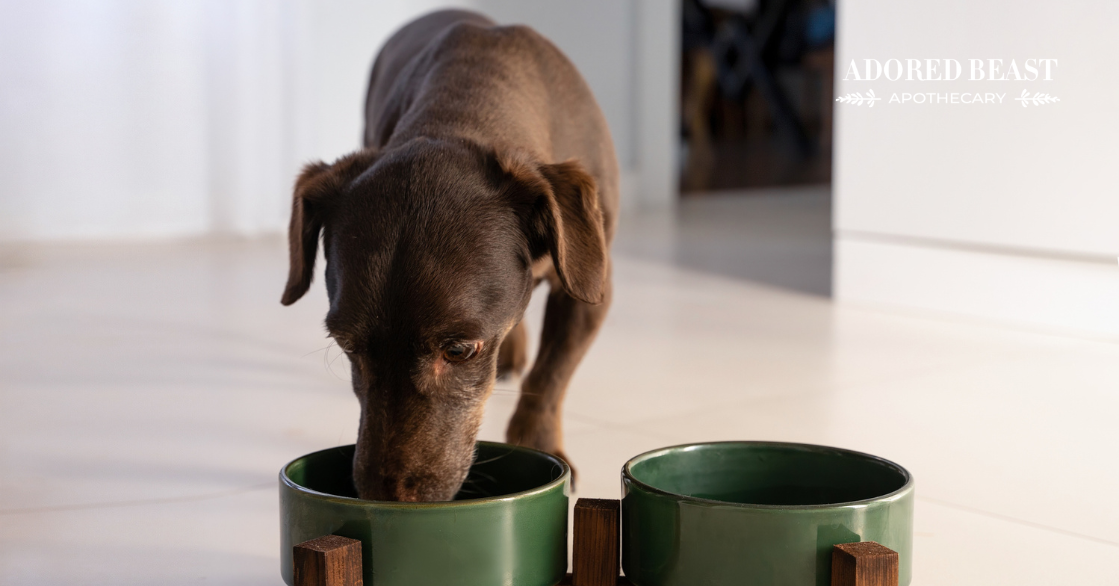We often like to think about how our dogs bring us closer to nature. Their inherent love for the outdoors motivates us to spend more time in natural environments, and if we’re lucky, we’re able to take that time to appreciate the surrounding beauty and build a closer connection to Mother Nature.
But, are dogs environmentally friendly?
Ouch, this one’s going to hurt a little bit… A new study says nope, unfortunately, our beloved canine companions are not so great for the earth.
Now, we all love our dogs, and we’re obviously not going to give them up because they’re not eco-friendly. And, of course, it would be easier to bury our heads in the sand and pretend we never even saw the study. Unfortunately, ignoring the facts won’t make something go away, and it definitely won’t help make the situation better. Knowing more is doing more, and if we recognize how our dogs impact the environment, both directly and indirectly, hopefully, we can improve things.
And that’s what this blog is all about!
Are Dogs Environmentally Friendly?
Ok, brace yourself; A new study in Pacific Conservation Biology concludes that“the impacts of owned dogs can be direct, indirect, highly localised and wide ranging.” Moreover, the researchers argue that, “the impact of owned dogs on the environment is far greater, more insidious, and more concerning than is generally recognised.”
Well now, that’s a statement and a half, isn’t it!
What does this impact relate to? Several things, actually.
1. Predatory Behaviour
Dogs are predators. They’re actually the only large carnivore that has been domesticated. And even as pets, they retain their predatory behaviour. You see it when they stalk or chase each other, squirrels, birds, bunnies, sticks (ok, no, maybe not sticks, but you get the picture).
And, even if they never catch their “prey” it’s still very disturbing to the animals and can be destructive to their habitats.
For example, as the study notes, when dogs chase shorebirds on beaches, they can have several direct impacts, including attacks, disrupting nests and colonies, or even causing undue energy expenditure which can impact migratory patterns and abilities. All of these things can be harmful (even fatal) for the birds in these areas.
Of course, it isn’t just birds. Many other animals are impacted by dogs. In just one example, a community science camera study in protected areas showed that white-tailed deer, eastern grey squirrels, and raccoons all temporally avoided dogs and humans, which were perceived as higher risk than humans alone or even coyotes. This might seem inconsequential, but a change in any animal pattern can have long-lasting, far-reaching impacts (think about the wolves in Yellowstone Park!).
2. Toxins from Topical Flea/Tick Meds
Whether a dog is swimming in the water, or just running around outside and shedding (as is natural), the toxins from flea and tick meds can be really harmful.
Chemical-based topical flea/tick medications can last several weeks on an animal’s skin/coat. In the water, topical flea/tick medications rinse off and are toxic to aquatic invertebrates like worms, mollusks, crustaceans, and insects, which all play crucial roles in aquatic ecosystems. On land, hair and fur are often used as a nest liner by birds and can be highly toxic, which can lead to dead offspring or unhatched eggs.
3. Bodily Waste
On average, a dog produces about 0.2 kg of feces and 0.4 liters of urine each day. Over a typical 13-year lifespan, that adds up to more than 1,000 kg of feces and 2,000 liters of urine per dog.
That’s a lot of poop and pee. If it isn’t being picked up and disposed of, it can have significant impacts.
The study notes these impacts:
- Urine impacts soil chemistry
- Urine can potentially become the greatest contributor to nitrogen in urban waterways
- Feces can be vectors for broad range of zoonoses that affect wildlife and humans, everything from rabies to distemper
4. The Pet Food Industry
The environmental impact of the dog food industry is huge and continues to grow. Making pet food uses a lot of resources, including land, water, and energy. It creates a large amount of greenhouse gas emissions – similar to what a mid-sized country produces – and takes up land almost twice the size of the United Kingdom!
What Can We Do?
It’s easy to read these facts and think that we can’t make an impact, but that’s not the case. Every little bit helps. We are all part of the problem, and that means we are also all part of the solution. We’re all responsible for treating the earth well and protecting it however we can.
When it comes to the above list of ways our dogs impact the environment, here are some steps you can take to mitigate the risks and reduce the impacts.
1. Predatory Behaviour
The data on the impact of dogs’ natural predatory behaviour suggests that a simple way to mitigate the worst effects of disturbance is to keep them leashed. If your dog doesn’t have great recall, perhaps consider a long line and always keep them within view, making sure they stay away from birds on shorelines and any nests or nesting areas. Respect signage regarding protected or vulnerable areas. In parks, stick to trails and marked pathways.
2. Toxins from Topical Flea/Tick Meds
We often advocate for the use of natural flea and tick prevention, and this is a really good reason for that. Not only do the harsh chemicals in these medicines put our own adored beasts at risk, but they significantly impact the ecosystems around us. Instead, choose natural options (we have a few in this post).
3. Bodily Waste
Eco-friendly waste management is the name of the game here!
- Pick up after your dog: This is crucial to prevent the spread of pathogens and pollutants into waterways.
- Use biodegradable or compostable waste bags: Avoid traditional plastic bags, which don’t decompose and contribute to landfill waste.
- Dispose of waste properly: Avoid leaving it on sidewalks or in wooded areas, and never flush it down a drain.
- Consider composting: This is a bit labour-intensive but can be really good for the environment. Here’s how to compost dog poop.
4. The Pet Food Industry
We are not going to stop feeding our animals, of course, but making more sustainable choices and exploring eco-friendly alternatives can make an impact.
- Eco-Friendly Brands: Look for brands that prioritize sustainable sourcing, minimize waste, and use eco-friendly packaging.
- Switch to Raw: Raw diets can be more sustainable as they use animal parts that might otherwise be discarded (organs and bones, for example).
- Local Sourcing: Supporting locally sourced pet food reduces transportation emissions and supports local economies.
Are dogs environmentally friendly? As the study notes, clearly, they are not. But that doesn’t mean we can’t do something about their impact. We all play a role in protecting the earth for the years ahead. Future generations (human and animal) depend on us making smart choices right now.












